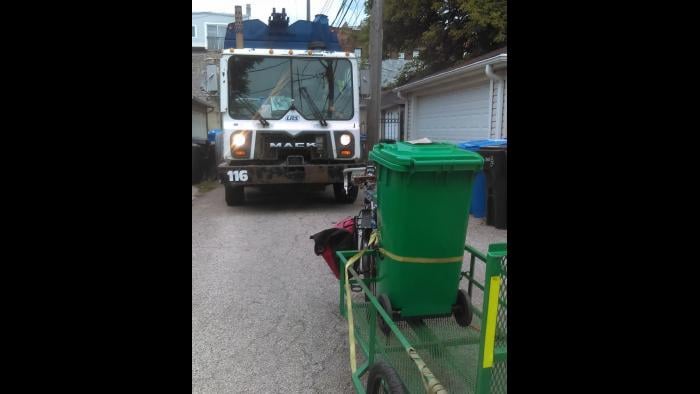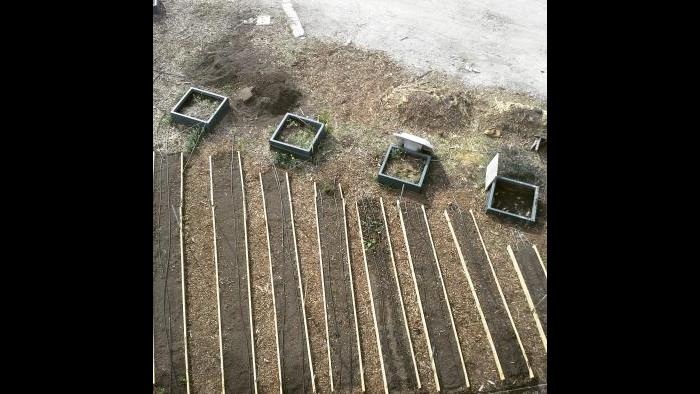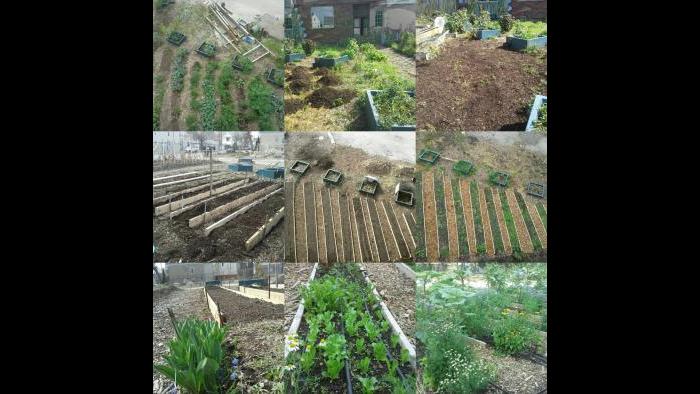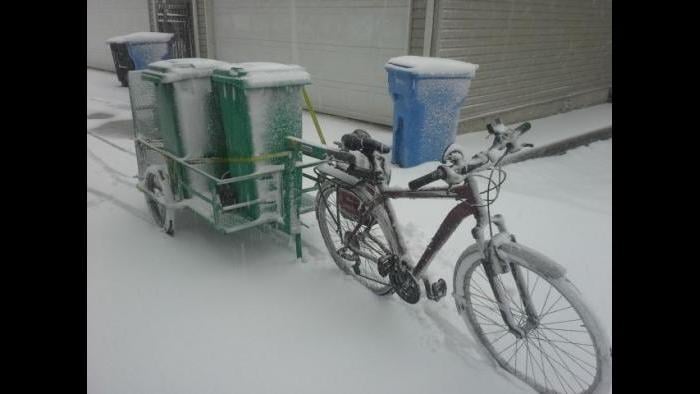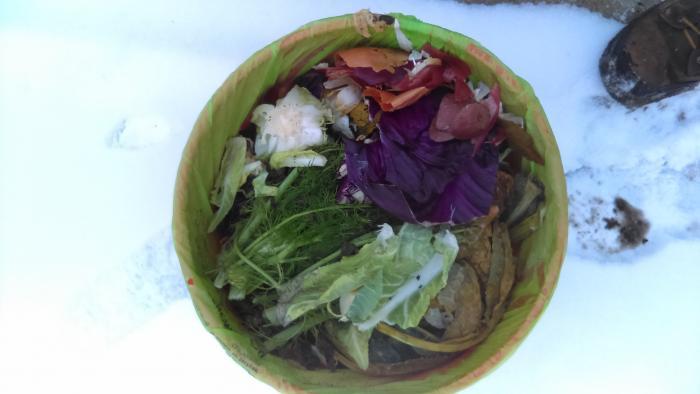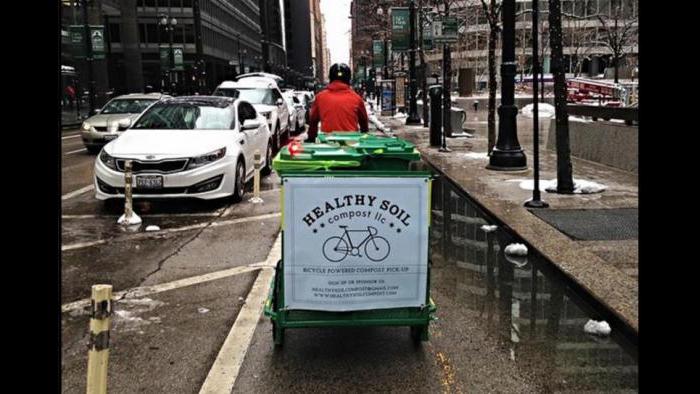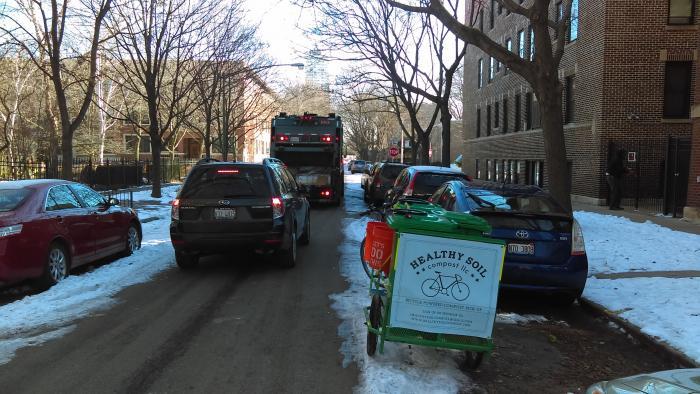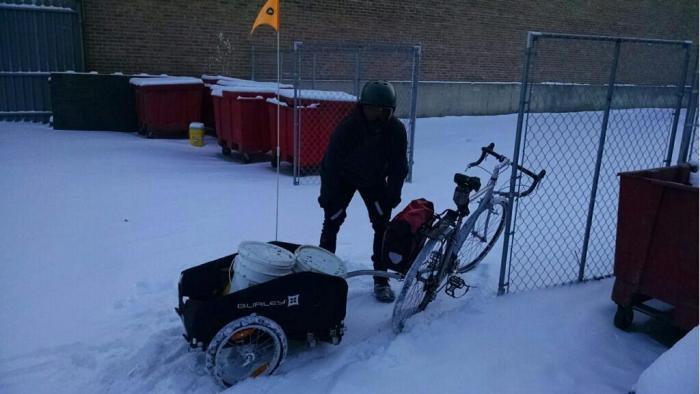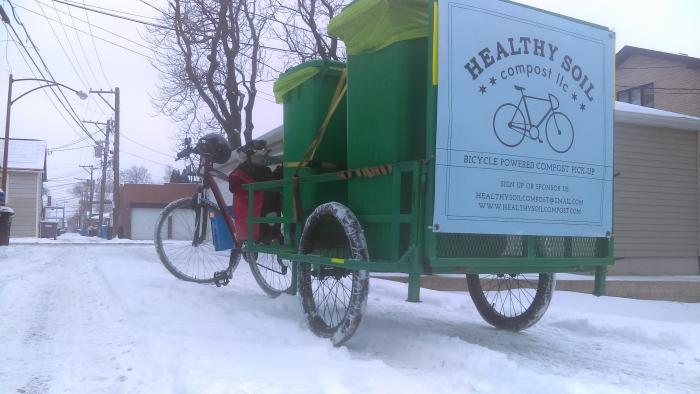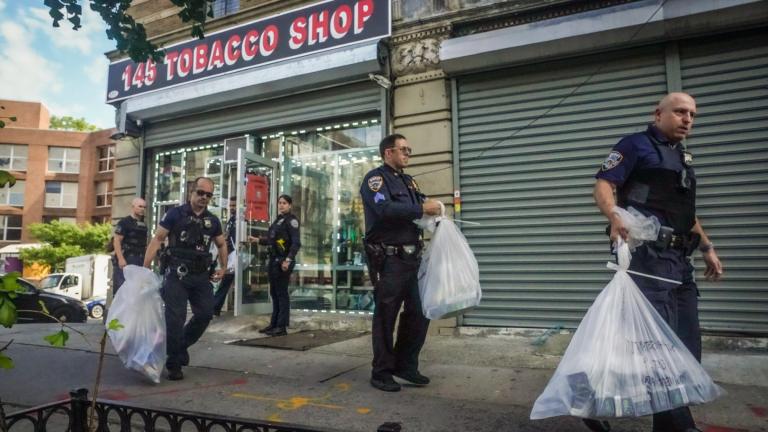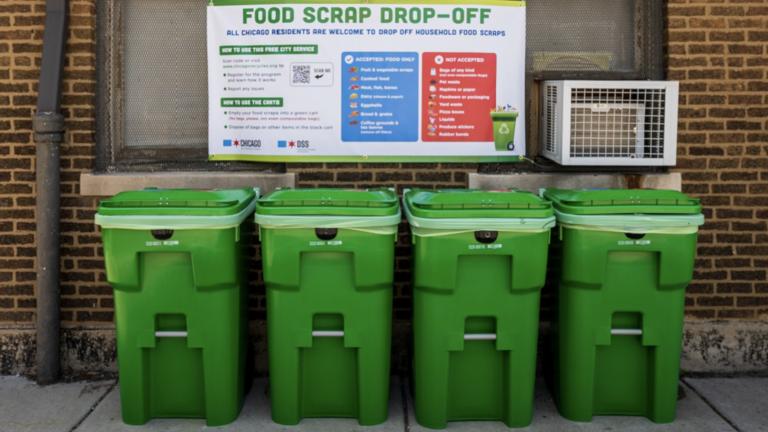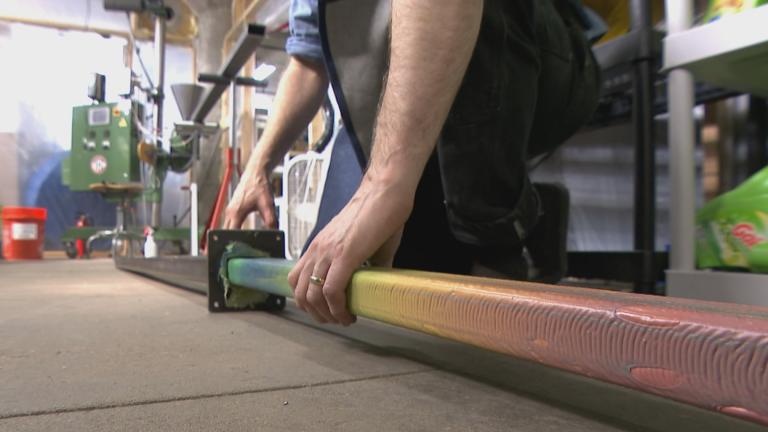If you live in the city, you may think it's hard to compost. Compost is rich soil created by naturally recycling organic material. But there's one man who is trying to make it easy. He's helping residents, restaurants and caterers compost–all by the seat of his bicycle. Learn about a small business called Healthy Soil Compost, and it's use of pedal power to expand composting in the city.
TRANSCRIPT
Jonathan Scheffel, owner of Healthy Soil Compost: I just try to stay very cautious and keep looking around me all of the time. Luckily my big butt trailer gives me a lot of room, I think.
Phil Ponce: Jonathan Scheffel is on a mission to expand composting in the city. And he’s doing it in an environmentally friendly way. By bike.
Scheffel: It’s kinda slow between Monday and Wednesday for the restaurants. So, it might add up to 500 pounds. I think the trailer weighs about 200 pounds just empty. Yeah, it's really good exercise for me.
Ponce: Despite the difficulty navigating through busy Chicago traffic and dragging 600 pounds, Jonathan loves providing his service via pedal power. In fact, he says his bicycle has attracted more customers.
Ariel Fang, Healthy Soil Compost customer: I love biking and it makes a lot of sense in terms of the full mission in what he's trying to achieve. He was at the South Loop market and I was walking by, happened to see this and I've actually been looking for a place to throw my compost for the past year so it actually was perfect how that worked out.
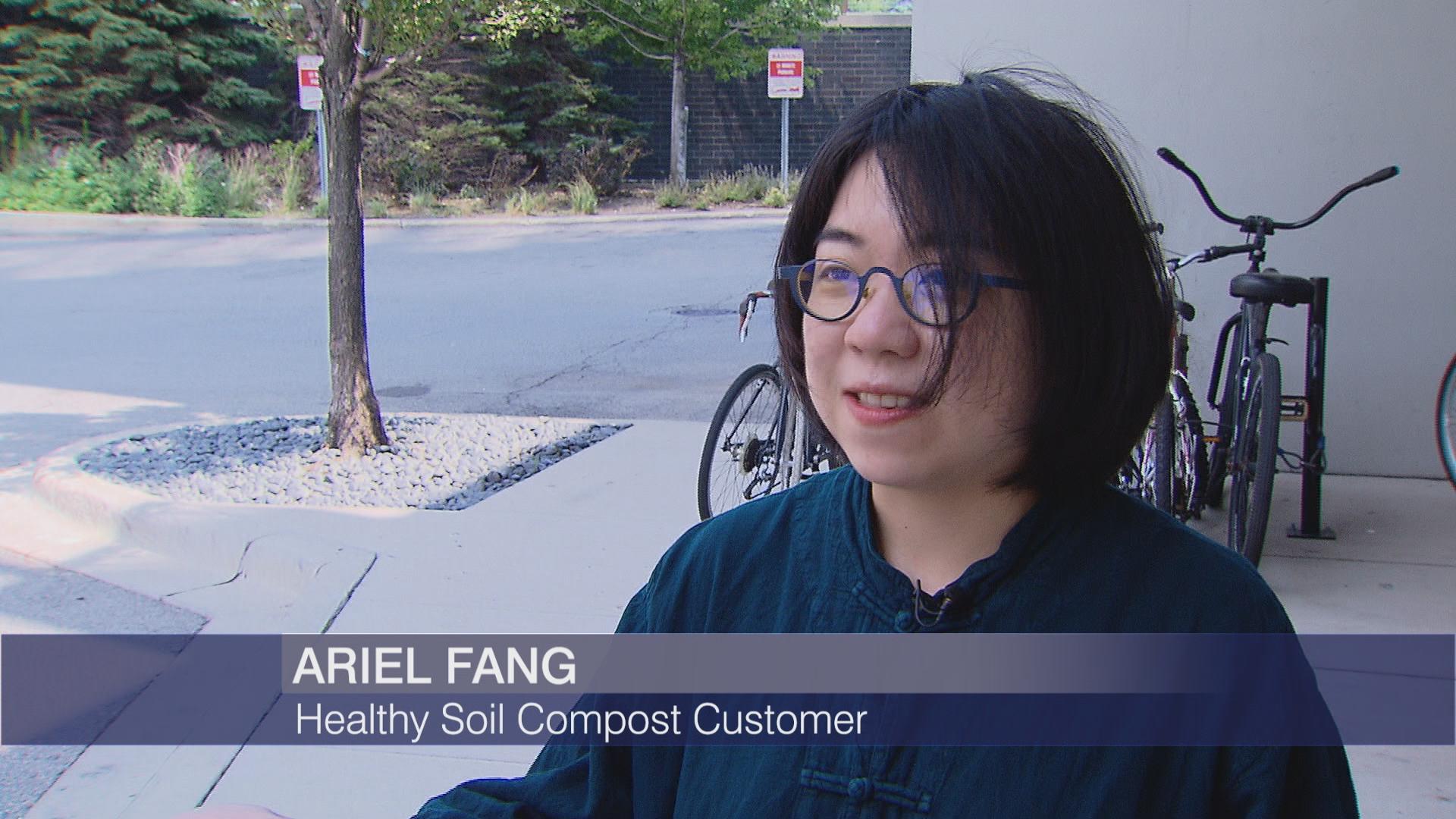
Scheffel: Each one of our members is actually so excited about doing this that they tell their friends. We’re all word of mouth, really. I haven't done much advertisement besides just riding around with the trailer.
Ponce: Jonathan’s Healthy Soil Compost organic recycling also helps restaurants divert food waste from landfills and offset waste-hauling costs.
Scheffel: So, just like any waste-hauling company, you pay them a service fee to take your waste, and then they take it usually to a landfill and they pay the landfill to put it in the hole–a plastic hole. This company is actually able to negotiate their trash costs to be less because this is their most heavy trash. So they pay less now for trash. So, it's a good economical offset.
Ponce: Currently there are no city incentives to compost. But if certain environmental benchmarks are hit, hotels can be green seal certified. So how does Jonathan make money?
Scheffel: I pick up your bucket–we give you buckets for containers–and you pay me the fee to take your waste. I pick up monthly, a little over 7,000 pounds. In the whole year of being a company, over 60,000 pounds so far. Just on a bicycle. And one person.
Ponce: Today, he’s taking the compost to a staging area. At this particular drop-off, the earthworm farm Nature’s Little Recyclers has a summer worm run to process the material.
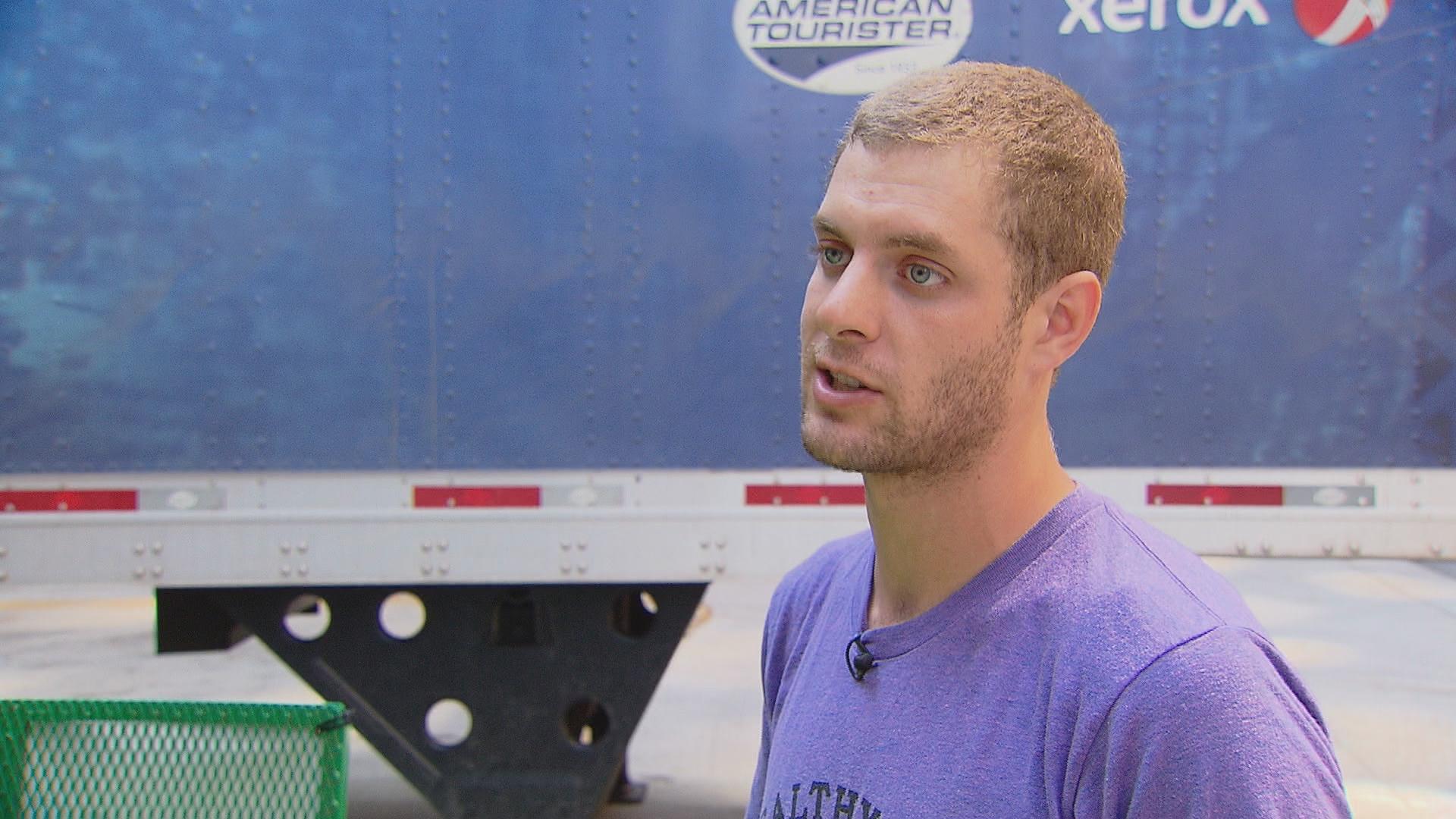 Jonathan Scheffel
Jonathan Scheffel
Scheffel: Especially with a bicycling company, it works to have these localized hubs that we can … not go too far to drop off materials. Nature's Little Recyclers inoculate this area full of earthworms and material. Earthworms can eat the burlap and the chaff and the food waste, and then after about three to six months they can come in and harvest compost from this and earthworms.
Ponce: Because the waste has seeds, new vegetables are growing in the compost.
Scheffel: You'll never get to go to a landfill and see food growing out of it. So that just shows how healthy this is.
Ponce: Jonathan’s business grew out of a hobby he started when he was gardening for a restaurant.
Scheffel: I asked neighbors if they wanted to pay me to pick up their waste and a lot of them said yes so I just started doing it for them as a hobby. From there it just kept kinda growing, and the season ended for my gardening job and I felt like I would just make this a company.
Ponce: Now some of the same restaurants he hauls food waste for are buying the compost for their urban garden, like this chef. He says his garden grows faster and is flourishing using the worm compost. Everything he grows on the roof is integrated into his menu.
Scheffel: Here at the restaurant, it’s a lot of fresh food that they’re–this is all back-of-house prep waste. So it's food that would normally go in the trash that they can't sell on their plate. But instead of throwing it away they're putting it in my bins. Here's a little mushroom stalks, bunch of lettuce. We have a bunch of bread rolls and from these restaurants, four of them, I'm doing almost 1,500 pounds a week of waste that would normally end up in the trash can.
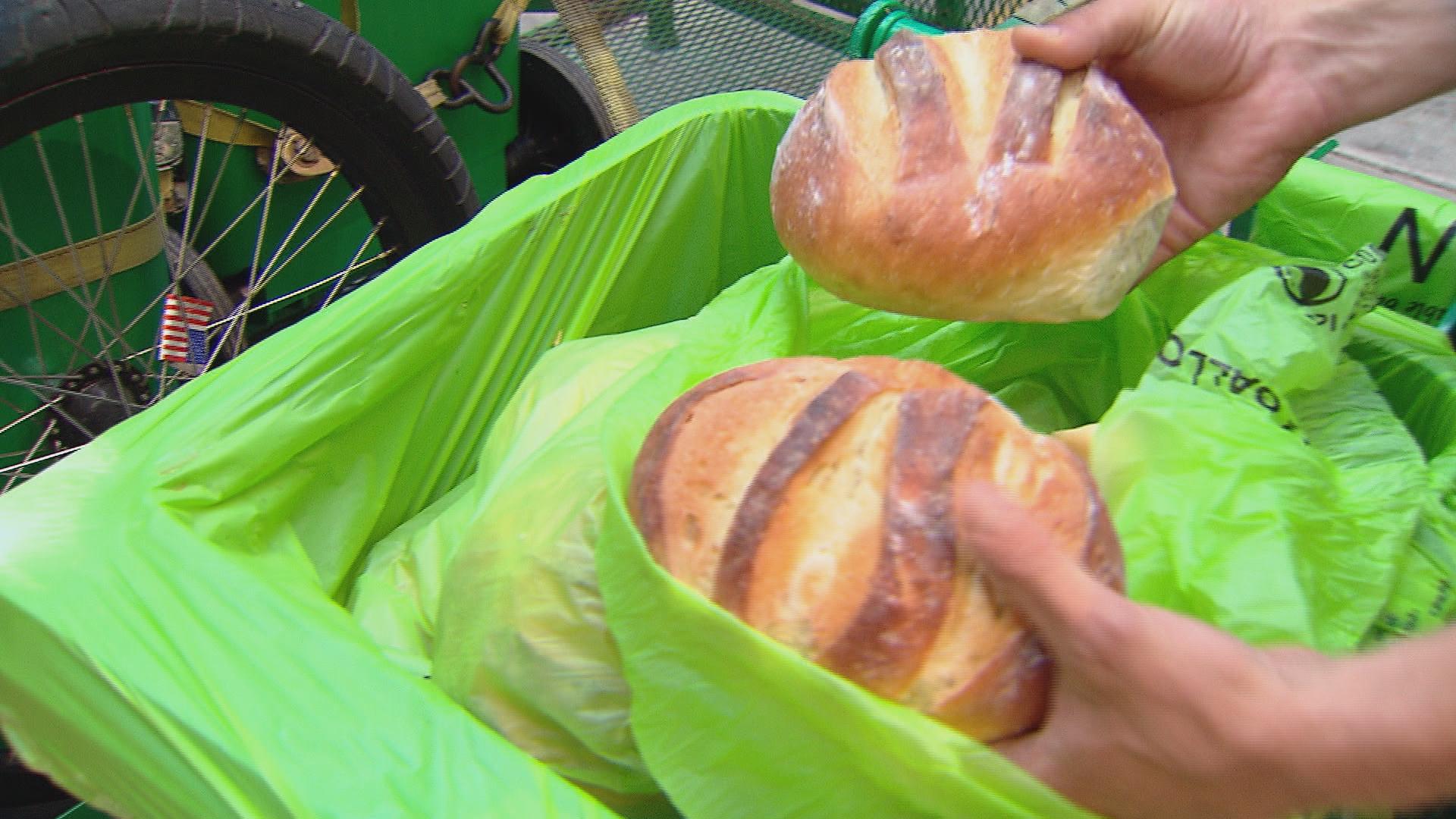
It takes about a hundred pounds of food waste to make about one pound of compost.
Ponce: You may have noticed that Jonathan doesn’t lock up his rig. Surprisingly, it’s only been an issue once.
Scheffel: Only one person so far has tried to take the trailer off of the hitch. It had over 300 pounds on it and they were struggling when I came out to them and surprised them.
Ponce: Despite hauling all year long, Jonathan has had only six relatively minor mechanical problems–flat tires. But, one of his employees was hit by a car.
Scheffel: Their trailer already got hit by a car. A hit and run. I'm surprised it hasn't happened more, but, we just try to stay cautious. Any bicyclist is going through this daily.
Ponce: On this day, Jonathan picked up at four restaurants, two homes and two caterers. He has enough business now that he’s hired four part-time bikers who work about two days a week. He hopes they will stick around in the winter.
Scheffel: Right now, I can't sustain their financial life, but hopefully they'll stick around, being a small business as it grows. Because they're doing pretty much everything I use to do on my own and now I can delegate to them and now we can grow together.
Ponce: As with most startups, Jonathan is putting most of what he makes back into the business.
Scheffel: I'm living under the poverty level, but it's, I'm kind of always afraid to pull money out of the business because I think it’s such a living thing that I need to keep as much money in the business as possible. But I am paying myself now after six months which is good. Right now I'm being able to pay four other people and myself so that's pretty good. And it's very fun, so it fulfills me in other ways.
![]()
For residential service, Jonathan and his team can pick up compost monthly, weekly or whenever you need him on-demand. By the way, those green garbage bags he uses are compostable, too. For more information, visit Healthy Soil Compost's website.
Related stories:
 Chicago-Area Scientists Convert Greenhouse Gas into Fuel Source
Chicago-Area Scientists Convert Greenhouse Gas into Fuel Source
Aug. 5: Using a process similar to photosynthesis, scientists from Argonne National Laboratory and the University of Illinois at Chicago have converted carbon dioxide into carbon monoxide and hydrogen gas, which can produce methanol and diesel fuels.
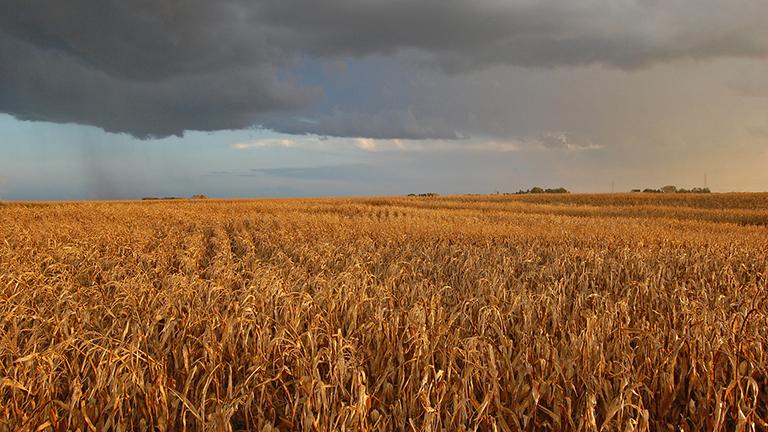 EPA: Widely Used Herbicide is Harmful to Wildlife
EPA: Widely Used Herbicide is Harmful to Wildlife
June 8: Some farm groups are criticizing a new report about the hazards of atrazine, a herbicide that was banned by the European Union more than 10 years ago.
 Turning Wastewater into Fertilizer, MWRD Plant Battles Nutrient Pollution
Turning Wastewater into Fertilizer, MWRD Plant Battles Nutrient Pollution
May 24: A brand new water treatment facility that takes wastewater and creates high-grade fertilizer comes online for the Metropolitan Water Reclamation District in Stickney.

